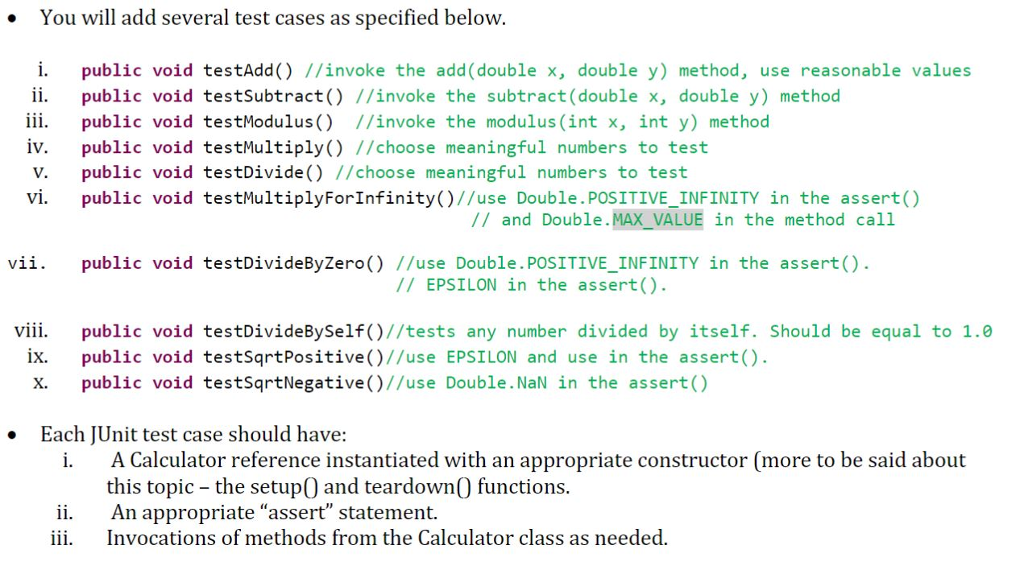
You will add several test cases as specified below. . i. public void testAdd) //invoke the add(double x, double y) method, use reasonable values . public void testsubtract() //invoke the subtract (double X, double y) method 111, public void testModuus() //invoke the moduus(int x, int y) method iv. public void testMultiply() //choose meaningful numbers to test V. public void testDivide) //choose meaningful numbers to test V. public void testMultiplyForInfinity()//use Double. POSITIVE-INFINITY n the assert() // and Double.MAX_VALUE in the method call public void testDivideByZero() //use Double. POSITIVE-INFINTY in the assert(). /7 EPSILON in the assertO vii, V111. public void testDivideBySelf()//tests any number divided by itself. Should be equal to 1.0 ix. public void testSqrtPositive()//use EPSILON and use in the assert() X. public void testSqrtNegative)//use Double.NaN in the assert() .Each JUnit test case should have: A Calculator reference instantiated with an appropriate constructor (more to be said about this topic - the setup0 and teardown0 functions. i. 1. An appropriate "assert" statement. iii Invocations of methods from the Calculator class as needed. You will add several test cases as specified below. . i. public void testAdd) //invoke the add(double x, double y) method, use reasonable values . public void testsubtract() //invoke the subtract (double X, double y) method 111, public void testModuus() //invoke the moduus(int x, int y) method iv. public void testMultiply() //choose meaningful numbers to test V. public void testDivide) //choose meaningful numbers to test V. public void testMultiplyForInfinity()//use Double. POSITIVE-INFINITY n the assert() // and Double.MAX_VALUE in the method call public void testDivideByZero() //use Double. POSITIVE-INFINTY in the assert(). /7 EPSILON in the assertO vii, V111. public void testDivideBySelf()//tests any number divided by itself. Should be equal to 1.0 ix. public void testSqrtPositive()//use EPSILON and use in the assert() X. public void testSqrtNegative)//use Double.NaN in the assert() .Each JUnit test case should have: A Calculator reference instantiated with an appropriate constructor (more to be said about this topic - the setup0 and teardown0 functions. i. 1. An appropriate "assert" statement. iii Invocations of methods from the Calculator class as needed







